They carry their homes on their backs but they do have a home from home – a sun-drenched meadow. This is the story of 600,000 snails, two adventure-seekers and their dreams carried on the wings of their enterprising spirit.
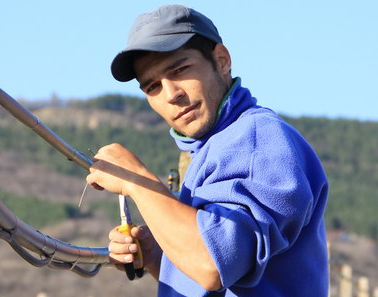 Four years ago young dancers Plamen Penchev and Paulina Manuilova took up a daring challenge – to start a snail farm. Just like that – with no skills or knowledge. They bought a large tract of land near Sevlievo with the help of family and friends.
Four years ago young dancers Plamen Penchev and Paulina Manuilova took up a daring challenge – to start a snail farm. Just like that – with no skills or knowledge. They bought a large tract of land near Sevlievo with the help of family and friends.
“When we bought it, it was just barren land, we didn’t even know where its boundaries lay,” says Plamen Penchev. “Little by little we started fencing it in, installing water mains and electricity, an irrigation system etc. We used a tractor to plough the land, from then on everything we did, we did by hand.”
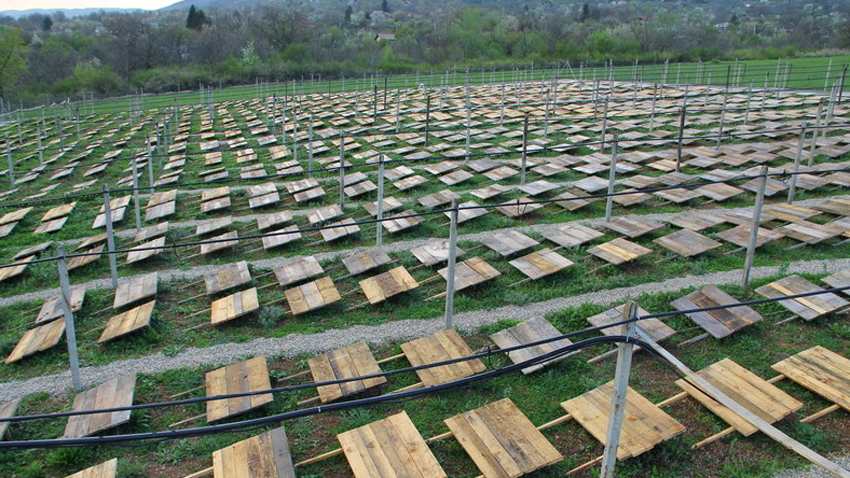 When PP Helix was ready, Plamen and Paulina went to the snail nursery and came home with 600,000 baby snails, no bigger than a grain of rice. With much care and attention to detail they put up wooden grating to protect them from the scorching sun. Soon their beginners’ luck kicked in and the farmers found their first buyer – in France, of all places, and there started selling their toddler-snails. They are all of the Helix Aspersa Maxima species and in just a few months they grew big enough to be used as food. But what do they taste like?
When PP Helix was ready, Plamen and Paulina went to the snail nursery and came home with 600,000 baby snails, no bigger than a grain of rice. With much care and attention to detail they put up wooden grating to protect them from the scorching sun. Soon their beginners’ luck kicked in and the farmers found their first buyer – in France, of all places, and there started selling their toddler-snails. They are all of the Helix Aspersa Maxima species and in just a few months they grew big enough to be used as food. But what do they taste like?
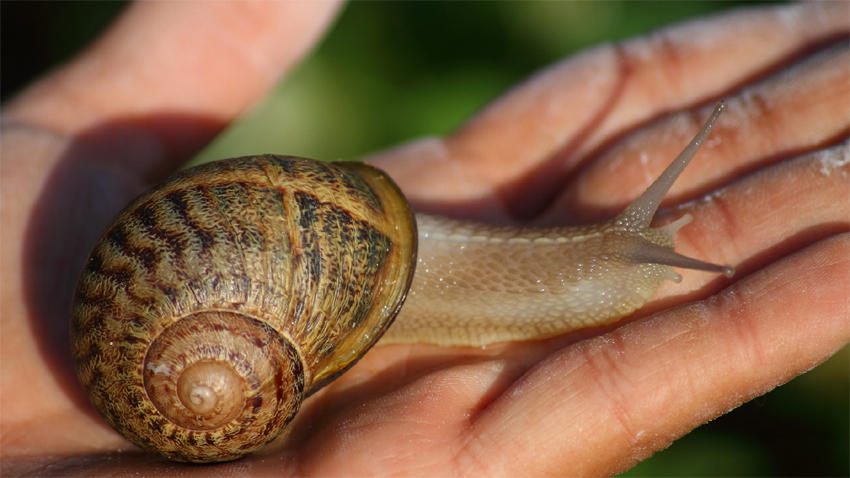 “They have a specific flavor,” says the young farmer and adds that he prefers them cooked Burgundy style. “Snails are fragile and if they are cooked properly they are a real delicacy. But people are prejudiced and that is why they avoid this kind of food. But the meat is delicious and in Italy, France, Spain it is considered a veritable treat. Unfortunately here in Bulgaria we have not cultivated that kind of palate. Maybe our grandparents knew how to cook snails, but I don’t think that is true of the younger generation.”
“They have a specific flavor,” says the young farmer and adds that he prefers them cooked Burgundy style. “Snails are fragile and if they are cooked properly they are a real delicacy. But people are prejudiced and that is why they avoid this kind of food. But the meat is delicious and in Italy, France, Spain it is considered a veritable treat. Unfortunately here in Bulgaria we have not cultivated that kind of palate. Maybe our grandparents knew how to cook snails, but I don’t think that is true of the younger generation.”
And as Bulgaria is, as yet an untapped market, Plamen Penchev exports his snails to a number of European countries. In his snail farm he applies what is known as the French technology – in springtime he buys newly hatched snails and at the beginning of autumn he sells them to avoid the winter cold that can kill them. But it is his dream to put in place a closed cycle of production which would mean higher profits. “Otherwise there is a huge amount of work but little money,” he says and adds that many people in his place would have given up long ago.
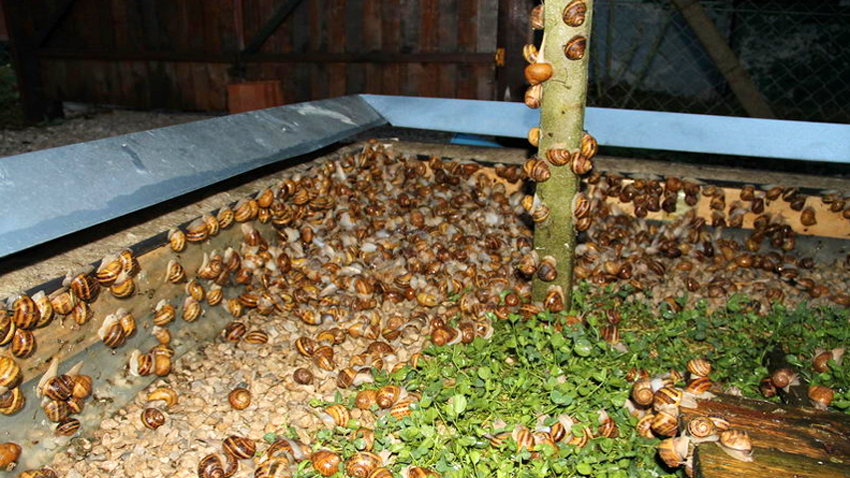
“The market is the biggest problem. If anyone wants to start a snail farm, they should first find a market for them. And they must persevere, learn how to breed them, how to bring down mortality as well as expenses and at the same time set down a clear production strategy etc.”
Of course breeding snails is a business, but as with any living being, even snails find a way to the human heart. Plamen Penchev admits he is fond of his little creatures because they are “calm, quite smart and easy to tame”. And as he takes care of his snails, he too is learning and has intriguing stories to tell, some he has read about, others he has experiences himself. Like this one – how snails, with their 24,000 teeth are able to digest all kinds of food. Or what passionate lovers they are, indulging in their passion for thirteen hours at a time. But there is a darker side – after all, snails are bred to end up on our table. “I sell live snails and I try not to think about that,” says the farmer philosophically.
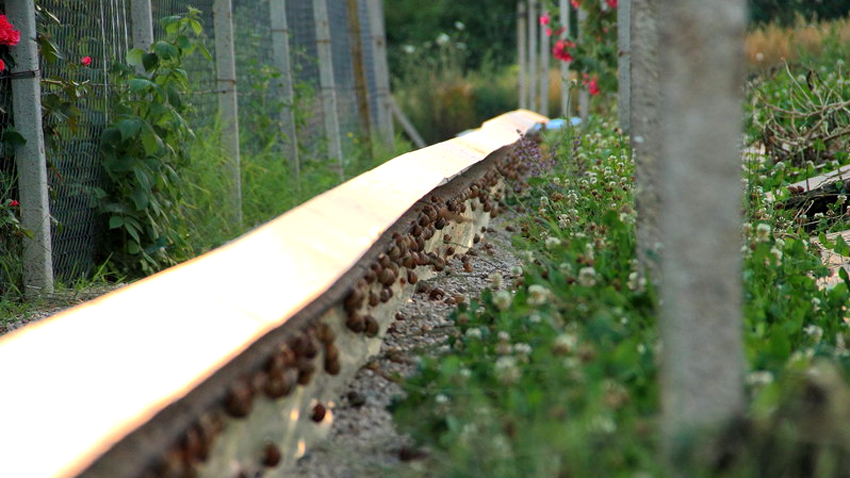
English version: Milena Daynova
Photos: pphelix.comThe village of Zmeyovo near the town of Stara Zagora is celebrating today, December 21, its traditional Festival of Pelin Wine. According to an old Bulgarian custom, guests will be welcomed with bread and salt on the square in front of the..
Each piece evokes warmth and nostalgia because each is handmade and unique. The silvery reflections on the glass baubles take us back to childhood, when winters were harsh and snow-white and Christmas decorations were made of wafer-thin glass . Nowadays,..
On March 30, 2004, the first issue of a Bulgarian newspaper in Great Britain, "BG Ben", was published. The beginning was modest – eight pages in A4 format and a big dream – to become a unifier of Bulgarians on the Island. Today, 20 years later, the..
On March 30, 2004, the first issue of a Bulgarian newspaper in Great Britain, "BG Ben", was published. The beginning was modest – eight pages in A4 format..
The Bulgarian State Railways (BDZ) is organizing a holiday trip for railway enthusiasts. A Christmas train with a steam locomotive and six..
The village of Zmeyovo near the town of Stara Zagora is celebrating today, December 21, its traditional Festival of Pelin Wine. According to an..

+359 2 9336 661
